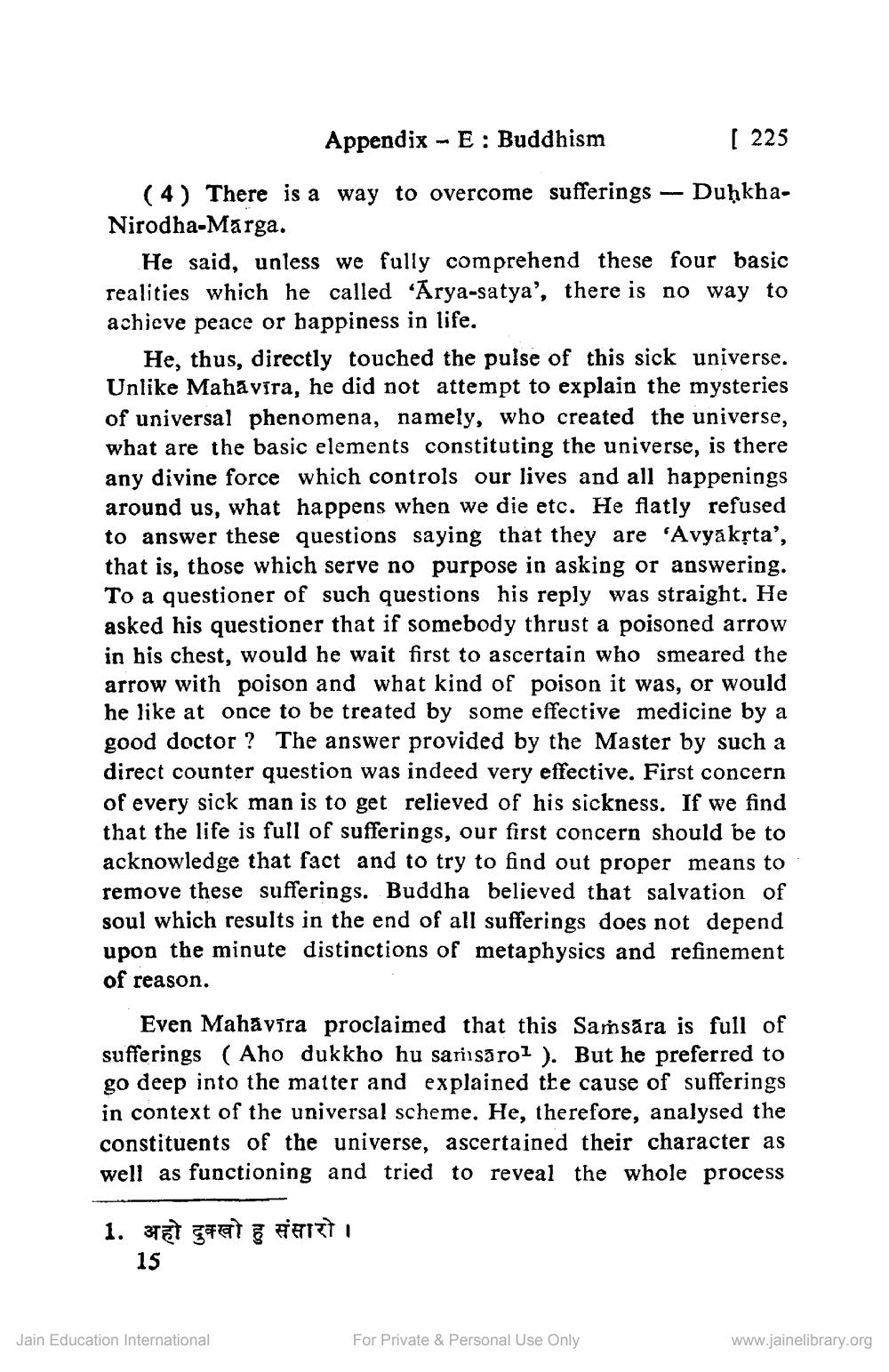________________
Appendix - E: Buddhism
[ 225
(4) There is a way to overcome sufferings - DuḥkhaNirodha-Marga.
He said, unless we fully comprehend these four basic realities which he called 'Arya-satya', there is no way to achieve peace or happiness in life.
He, thus, directly touched the pulse of this sick universe. Unlike Mahavira, he did not attempt to explain the mysteries of universal phenomena, namely, who created the universe, what are the basic elements constituting the universe, is there any divine force which controls our lives and all happenings around us, what happens when we die etc. He flatly refused to answer these questions saying that they are 'Avyakṛta', that is, those which serve no purpose in asking or answering. To a questioner of such questions his reply was straight. He asked his questioner that if somebody thrust a poisoned arrow in his chest, would he wait first to ascertain who smeared the arrow with poison and what kind of poison it was, or would he like at once to be treated by some effective medicine by a good doctor? The answer provided by the Master by such a direct counter question was indeed very effective. First concern of every sick man is to get relieved of his sickness. If we find that the life is full of sufferings, our first concern should be to acknowledge that fact and to try to find out proper means to remove these sufferings. Buddha believed that salvation of soul which results in the end of all sufferings does not depend upon the minute distinctions of metaphysics and refinement of reason.
Even Mahāvīra proclaimed that this Samsara is full of sufferings (Aho dukkho hu samsaro1). But he preferred to go deep into the matter and explained the cause of sufferings in context of the universal scheme. He, therefore, analysed the constituents of the universe, ascertained their character as well as functioning and tried to reveal the whole process
1. अहो दुक्खो हु संसारो ।
15
Jain Education International
For Private & Personal Use Only
www.jainelibrary.org




